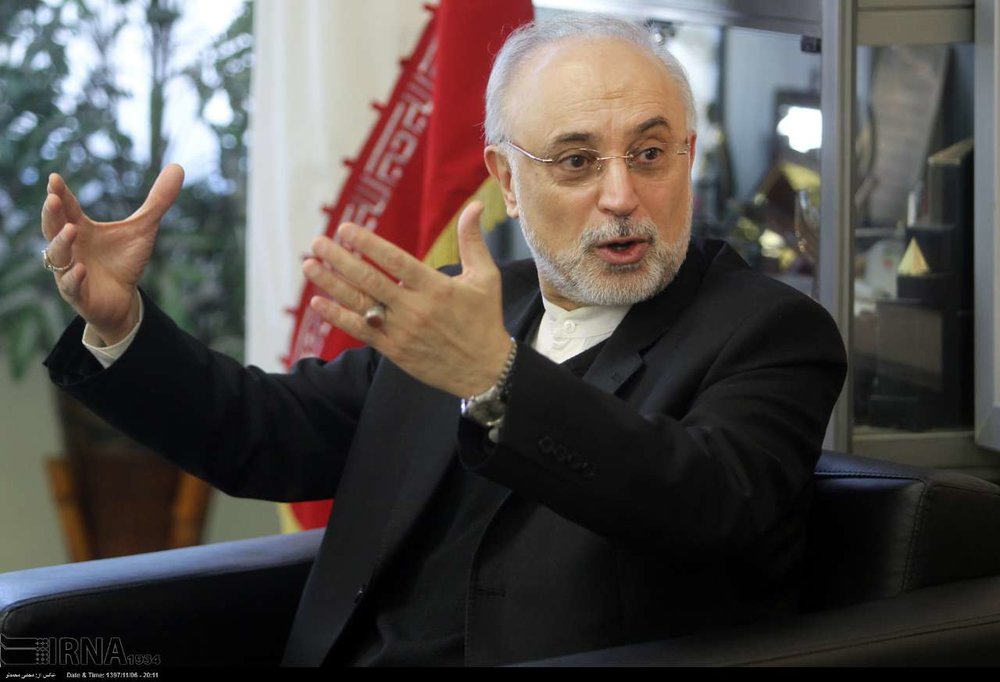Iran not to take decision on nuclear deal emotionally: Salehi

TEHRAN - Ali Akbar Salehi, director of Iran’s Atomic Energy Organization, said on Saturday that Tehran will not take decision on the 2015 nuclear deal emotionally.
“As it was said by the Leader of the Islamic Revolution [Ayatollah Seyyed Ali Khamenei] clearly, we monitor the other side’s actions in order to take wise actions and avoid deciding based on emotion,” he said on the sidelines of visiting an exhibition.
According to a new report released by the UN nuclear watchdog on Friday, Iran has remained within the key limits on its nuclear activities imposed by its 2015 deal with major powers despite growing pressure from newly reimposed U.S. sanctions.
Under the nuclear deal, officially called the Joint Comprehensive Plan of Action, Iran agreed to put limits on its nuclear activities in exchange for termination of economic and financial sanctions.
FATF move ‘proves the other side does not want us to reach a deadlock’
Commenting on the Paris-based Financial Action Task Force (FATF) action in extending suspension of its measures against Iran, Salehi said, “The move proves that the other side does not want us to reach a deadlock.”
“We will take any decision that serves the national interests,” he noted.
The Paris-based FATF watchdog announced on Friday that Iran has until June to fix its anti-money laundering and terrorism financing rules or face increased international scrutiny of its banks.
Last October, the global watchdog had already given Iran until February to complete an action plan of reforms that would bring it in line with global norms, or face consequences.
The FATF concluded this week at a meeting that “there are still items not completed” and said in a statement it “expects Iran to proceed swiftly in the reform path”, according to Reuters.
One of the actions Iran is required to take to appease the FATF is joining the United Nations Convention against Transnational Organized Crime (UNTOC), which is also called the Palermo Convention, a 2000 United Nations-sponsored multilateral treaty against transnational organized crime.
The other action is to join the CFT (the convention combatting financing of terrorism).
On October 7, 2018, the Majlis (parliament) voted in favor of the CFT. However, the oversight Guardian Council rejected the bill by finding 22 faults with it.
To become a law, the Guardian Council should vet the bill for compliance with the Constitution.
According to the constitution, in cases when the parliament and the Guardian Council disagree on a bill the issue is referred to the Expediency Council for final arbitration. The bill is now under study by the Expediency Council.
NA/PA
Leave a Comment